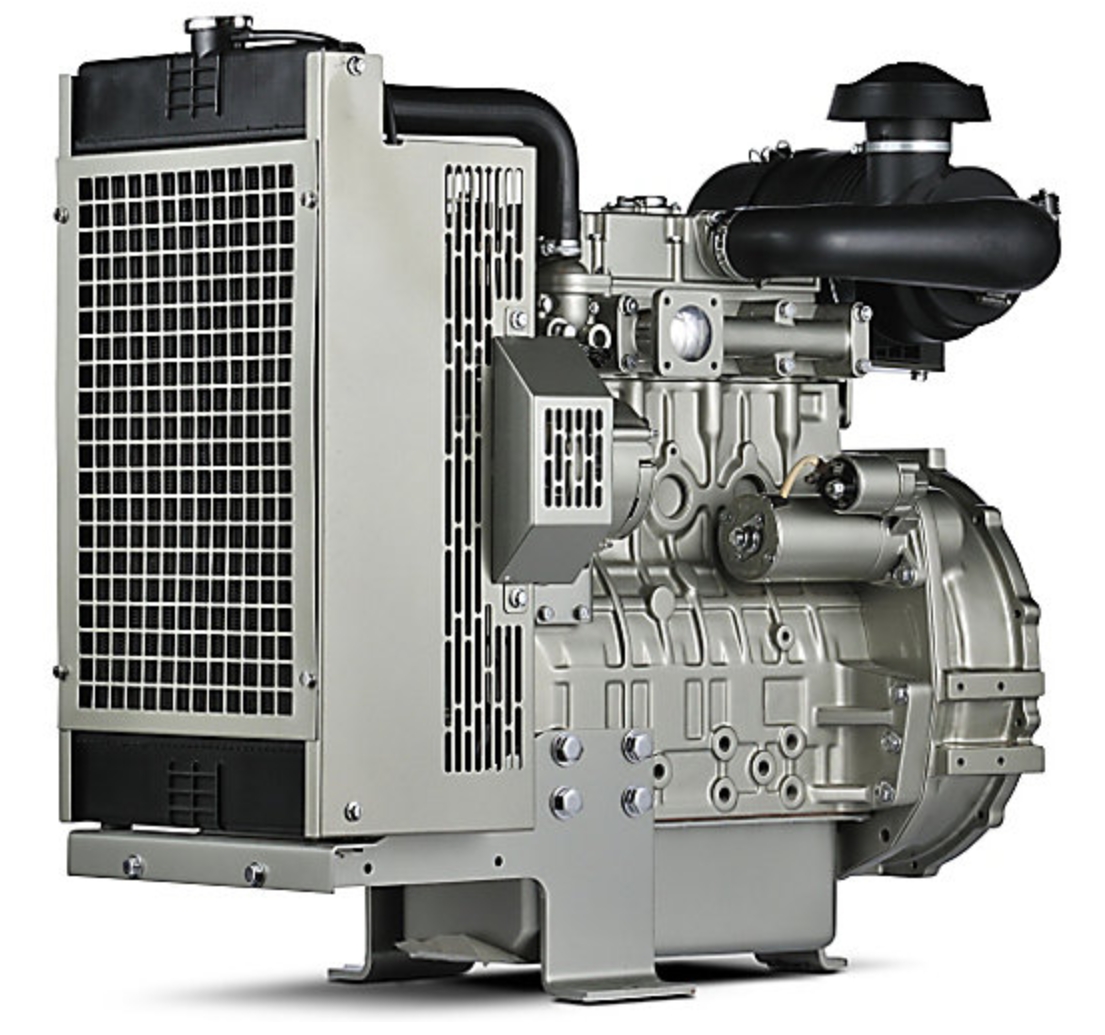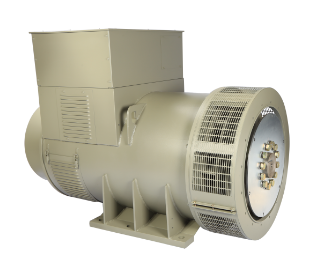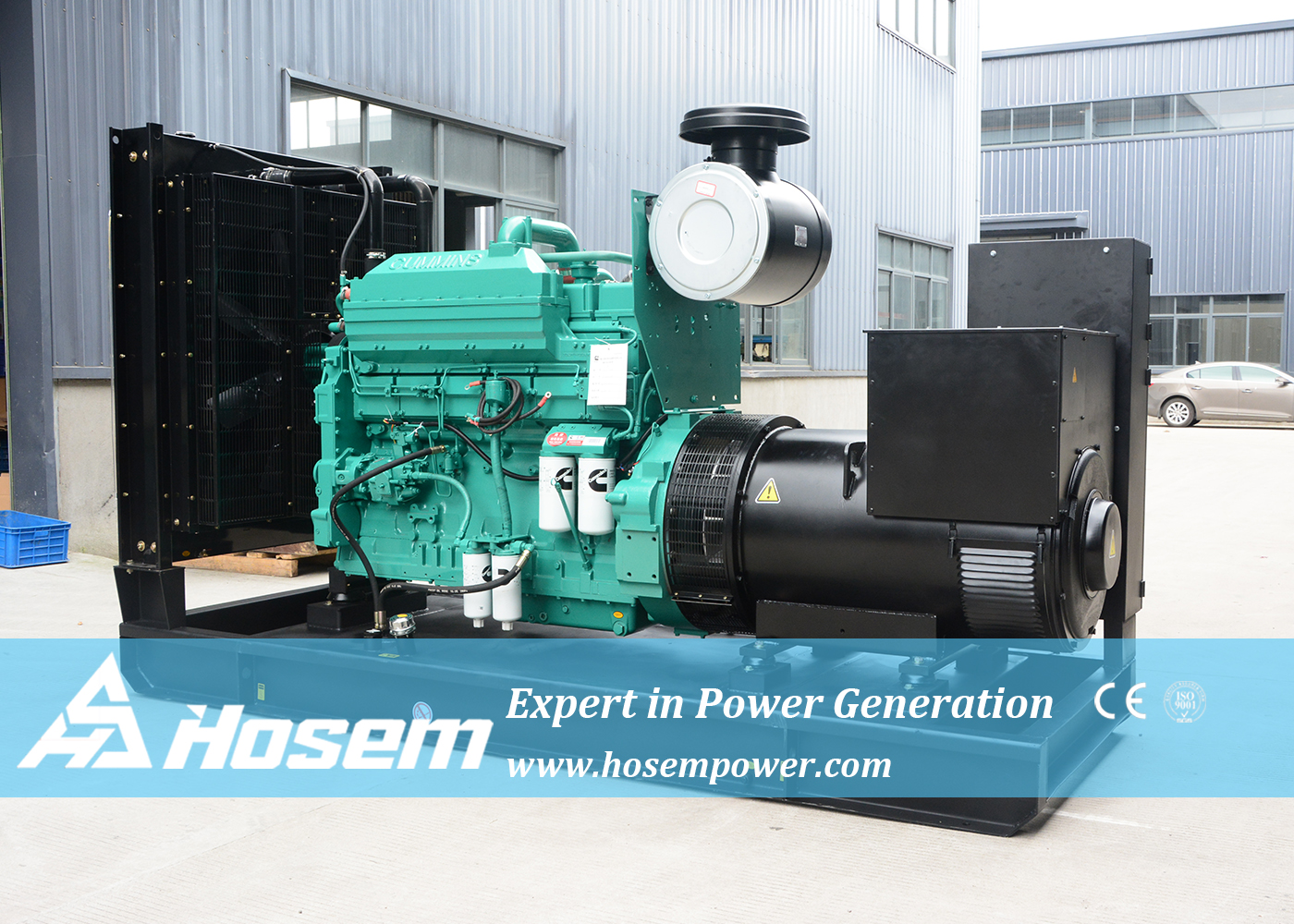What Is Genset? A Complete Guide to Generator Sets
A genset, short for generator set, is a device that generates electrical power by converting mechanical energy into electricity. It is commonly used for backup power, industrial operations, and remote locations where the main power grid is unavailable. Gensets come in different sizes, power outputs, and fuel types, making them suitable for various applications.
What Components of Genset?
Power System

- Engine: The power source of the generator set, typically including diesel engines, gasoline engines, hydro turbines, or wind turbines. The engine converts the chemical energy of fuel into mechanical energy to drive the generator.
- Combustion System: In a diesel generator set, air filtered through an air cleaner mixes with high-pressure atomized diesel fuel. After compression, the mixture ignites, generating high-temperature, high-pressure gas that drives the piston to work.
Control System
- Control Module: Monitors and adjusts the operation of the generator set, including voltage regulators, frequency regulators, and protection devices. The control system ensures the generator runs stably within a safe range.
- Sensors and Actuators: Sensors detect parameters such as temperature, pressure, and current, while actuators adjust fuel supply, excitation current, and other factors according to control commands to maintain stable generator output.
Generator Components

- Rotor: Composed of conductor coils and magnetic poles. When rotated by an external force, the conductors cut through magnetic field lines, generating an induced electromotive force. The rotor is the core component responsible for electricity generation.
- Stator: A coil of wire fixed inside the housing. As the rotor's magnetic field changes, an induced current is generated in the stator coil, producing an AC power output.
- Excitation System: Provides a constant magnetic field to excite the rotor and generate current. It includes the excitation power supply, excitation coil, and regulation device.
Auxiliary Systems
- Exhaust System: Discharges combustion gases produced by the engine and reduces noise and environmental pollution. Many modern generator sets are equipped with mufflers and high-efficiency filters.
- Cooling System: Uses radiators, fans, and other components to dissipate heat generated during engine and generator operation, keeping the equipment within a proper temperature range.
- Vibration Damping System: Reduces vibration and noise during operation, improving stability and extending service life.
- Electrical System: Includes batteries, chargers, and distribution panels to provide startup current and ensure stable power output for the generator set.
How Does Genset Work?
When the engine runs, it turns the alternator, which will creates a voltage in the magnetic field between the stator and the rotor. When the stator is connected to a load, the current is generated, which causes the current to flow.
Types of Gensets

Gensets are classified based on fuel type, application, and size:
1. Based on Fuel Type
- Diesel Generator Set – Uses diesel fuel, known for its reliability, fuel efficiency, and durability.
- Gas Generator Set – Uses natural gas or LPG, offering lower emissions and quieter operation.
- Petrol Generator Set – Common for small portable generators but less efficient for large-scale use.
- Hybrid Generator Set – Combines conventional fuel with renewable energy sources like solar power.
2. Based on Application
- Standby Generator – Used as a backup power source in case of power outages.
- Prime Power Generator – Operates continuously as the main power source, ideal for remote locations.
- Marine Generator – Designed specifically for use on ships and boats.
- Industrial Generator – High-capacity gensets for factories, hospitals, and data centers.
3. Based on Size and Power Output
- Small Gensets – Ranges from 1kVA to 100kVA, used for homes and small businesses.
- Medium Gensets – Between 100kVA and 1000kVA, ideal for commercial and industrial applications.
- Large Gensets – Above 1000kVA, used for heavy industries, data centers, and large-scale power generation.
Advantages of Using a Genset
- Reliable Power Supply – Ensures continuous electricity during power failures.
- Versatile Applications – Used in various industries, from construction to telecommunications.
- Fuel Flexibility – Available in diesel, gas, and hybrid options.
- Customizable Solutions – Gensets can be tailored to meet specific power requirements.
Choosing the Right Genset
When selecting a genset, consider the following factors:
- Power Requirement – Calculate the total power consumption of the equipment you need to run.
- Fuel Efficiency – Diesel gensets are more fuel-efficient for long-term use.
- Noise Level – Silent gensets are preferred for residential and office applications.
- Maintenance & Service – Choose a brand with accessible spare parts and service support.
At Hosem Power, we offer high-quality diesel generator sets ranging from 3kW to 2500kW, powered by Cummins, Perkins, Weichai, Baudouin, and SDEC engines. Our gensets are efficient, durable, and customizable to meet your power needs.
For expert advice and the best genset solutions, contact Hosem Power today!



